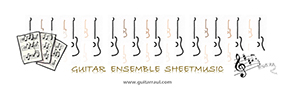Cory M. Gavito
In May of 1609, Giuseppe Faccone, working as a talent scout for the Duke of Mantua, Vincenzo Gonzaga, sent the following news to Mantua regarding his brother’s pursuit in Naples of a talented nineteen-year-old singer: “My brother told me that for a while he has been following the progress of a Neapolitan girl who has all of these qualities: she plays the harp excellently and sings from the book all kinds of madrigals with such confidence that there is no other singer who can surpass her.”
As is now well known, this force of nature was Adriana Basile, who months later became the superstar of the Mantuan court. Monteverdi ranked her voice even above Francesca Caccini’s. The beauty of her voice, however, was not for Faccone the most impressive statistic of her musicianship: “And what is even better” he goes on to say, “she plays the guitar very well and sings alla spagnola (in the Spanish manner), and in such a pairing that between the Italian and Spanish [songs] she knows more than three hundred works by heart.”
As impressive as this dimension of Basile’s musical talent might have been for Faccone and others fortunate enough to have heard her sing and play these songs, I would like to pose a few questions about this account that direct us first to the practical and formative nature of Basile’s musicianship, and second to the nature of her repertory, namely guitar songs alla spagnola. I want to ask if her talent alone suffices in explaining how Basile could have memorized such an extensive repertory before the age of twenty. Was there something about her repertory of guitar songs that facilitated memorization? Are we misguided in understanding her repertory as a “repertory” per se—a body of composed works learned, studied, organized, and compiled expressly for the purpose of
performance? I will suggest that we might better understand the musical abilities of Basile by instead thinking of her “three hundred works” as a practice or an idiom, a mode of knowledge, a way of doing, and one in which the Spanish guitar and an Italian concept of Spanishness (alla spagnola) were central in defining this practice for her Italian audiences
Alla [vera] spagnola: Hearing Spain and Playing Guitar in Early Modern Italy





